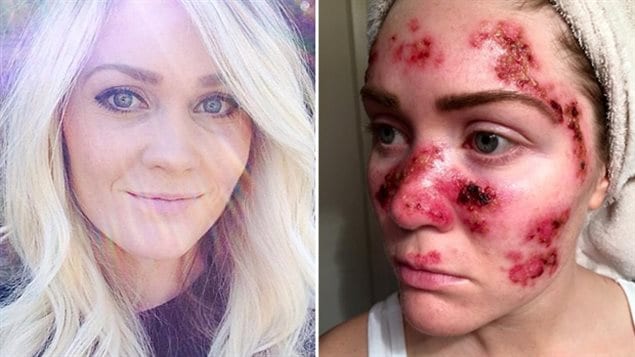There she is, slim, and tanned in a small bikini relaxing in the sun. On the cover or the inside of any of several glossy magazines on the store racks and that’s the kind of photo you’re likely to see.
The trouble is with the subliminal message that to look good you need a deep tan. This has medical staff concerned about the risks of skin cancer.
A new study published in the Canadian Journal of Public Health, found that magazines promote this tanned look but mention little or nothing about the risk factors of sun exposure and early detection of skin cancer. Medical professionals have long been saying that skin cancer is a significant and growing health problem.
“Messages surrounding skin cancer in Canadian women’s magazines are conflicting and there are important gaps,” said Professor Jennifer McWhirter, who conducted the study for her doctoral dissertation in the School of Public Health and Health Systems at the University of Waterloo in south-western Ontario. “This is problematic because the mass media is an important source of health information for people.”

The study examined articles in six Canadian and six American women’s magazines over 13 years. It found that while a high percentage of articles and images promoted sunscreen use, (72%), there was very little on other protection measures. Only a small percentage of articles and almost no images discouraged indoor tanning, while roughly half the articles and images promoted the tanned look as being “attractive”.
A young nurse in Alabama has begun a facebook page to try to warn others about tanning excessively.
“I had my own personal tanning bed in my home, and so did a lot of my friends growing up,” she told CNN in an interview earlier this year. “Everyone tanned … I didn’t really even think about the future or skin cancer at the time.”
At 21, Willoughby saw a dermatologist for the first time after a friend was diagnosed with melanoma. Sure enough, she too was sick. Some cancerous skin tissue was removed, but it wasn’t a cure. Over the past six years, she’s been diagnosed with basal cell carcinoma five times and squamous cell carcinoma once.
Each time she has undergone painful procedures to remove the cancer from her skin — from surgical excision and liquid nitrogen freezing to curettage and electro-dessication.

The University of Waterloo study concludes that, “conflicting messages about prevention (text vs. images) may contribute to harmful UV behaviours among Canadian women.”
The study was funded by the Canadian Institutes of Health Research and the Social Sciences and Humanities Research Council of Canada







For reasons beyond our control, and for an undetermined period of time, our comment section is now closed. However, our social networks remain open to your contributions.